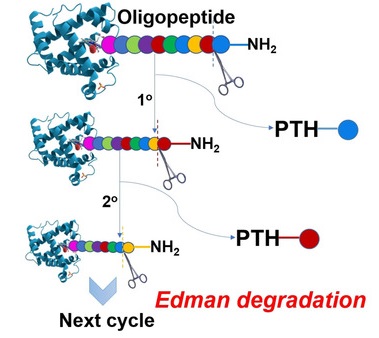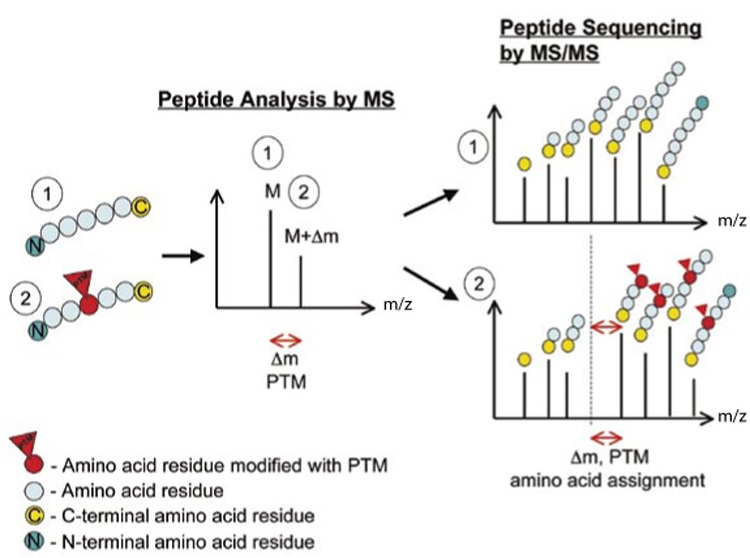Recombinant Collagen N-terminal Sequence Analysis Service
Recombinant Collagen N-terminal Sequence Analysis Service is a technical service that precisely analyzes the N-terminal amino acid sequence of recombinant collagen molecules using Edman degradation or mass spectrometry techniques. This service helps confirm the quality and stability of recombinant collagen, preventing potential quality issues, and provides reliable structural information for further biological applications.
Recombinant Collagen is a biomaterial widely used in fields such as biomedicine, tissue engineering, and skincare. In the development of recombinant collagen, ensuring the integrity and accuracy of its N-terminal sequence is crucial for its functionality, stability, and performance in applications. N-terminal Sequence Analysis is a specialized technique for identifying the N-terminal sequence of proteins. It provides critical support for quality control, functional validation, and post-translational modification (PTM) analysis of collagen.

Zhang H. et al. Chemistry. 2020.
N-terminal sequence analysis techniques mainly include two commonly used methods: Edman degradation and mass spectrometry (MS) analysis. Edman degradation is the classic method for N-terminal sequence analysis. It sequentially removes the amino acids from the N-terminal through chemical reactions and identifies each amino acid as it is removed. This method is suitable for analyzing proteins without a blocked N-terminus and can typically detect the first 15 amino acids of the protein's N-terminus. Mass spectrometry (MS) analysis works by analyzing the mass-to-charge ratio (m/z) of a protein to infer its amino acid sequence. It can be used for proteins with a blocked N-terminus and can detect over 30 amino acids at the N-terminus.
By utilizing both Edman degradation and mass spectrometry analysis, MtoZ Biolabs offers Recombinant Collagen N-terminal Sequence Analysis Service to precisely identify the N-terminal amino acid sequence of recombinant collagen. This service helps confirm the quality and stability of recombinant collagen, supporting its applications in fields such as biomedicine, tissue engineering, and skincare.
Analysis Workflow

Larsen MR. et al. BioTechniques. 2018.
The main analysis workflow of Recombinant Collagen N-terminal Sequence Analysis Service is as follows:
1. Enzymatic Digestion and Sample Preparation
Use enzymatic digestion techniques to cleave collagen into peptides for subsequent analysis.
2. N-terminal Sequence Analysis (Edman Degradation or Mass Spectrometry)
Perform sequence identification of the N-terminal peptide using either Edman degradation or mass spectrometry.
3. Data Analysis and Result Confirmation
Use specialized software to compare the mass spectrometry data and confirm the accuracy of the N-terminal sequence.
4. Report Delivery
Provide a detailed report, including chromatograms, N-terminal sequence information, and sequence alignment results.
Service Advantages
1. Advanced Analysis Platform: MtoZ Biolabs established an advanced Recombinant Collagen N-terminal Sequence Analysis platform, guaranteeing reliable, fast, and highly accurate analysis service.
2. One-Time-Charge: Our pricing is transparent, no hidden fees or additional costs.
3. High-Data-Quality: Deep data coverage with strict data quality control. AI-powered bioinformatics platform integrates all Recombinant Collagen N-terminal Sequence Analysis data, providing clients with a comprehensive data report.
4. Customized Service: Based on the specific needs of different clients, MtoZ Biolabs offers tailored analytical solutions to help clients address specific structural issues.
Sample Submission Suggestions
MtoZ Biolabs accepts a variety of sample types, including purified recombinant collagen, lyophilized powders, and more. Samples should be shipped at low temperatures and protected from repeated freeze-thaw cycles.
If your sample conditions are special or if you're unsure how to prepare your samples, please feel free to contact the MtoZ Biolabs technical team. We will provide personalized sample submission guidelines and pretreatment support based on your needs.
Applications
Application examples of Recombinant Collagen N-terminal Sequence Analysis Service:
Recombinant Collagen Quality Control: Ensure that the N-terminal sequence of collagen matches the designed sequence, verifying its purity and accuracy.
Post-translational Modifications (PTMs) Analysis: Identify N-terminal post-translational modifications, aiding in the optimization of collagen’s biological function.
Recombinant Collagen Functional Validation: Confirm the integrity of the N-terminal structure of collagen to ensure its functionality in biological applications.
Vaccine Development and Immunology Research: Verify if the N-terminal sequence of recombinant collagen meets immunogenicity requirements, supporting vaccine development.
Deliverables
1. Experimental Steps
2. Relevant Instrument Parameters
3. Chromatography/Mass Spectrometry Images
4. Raw Data
5. Recombinant Collagen N-terminal Sequence Information
How to order?







